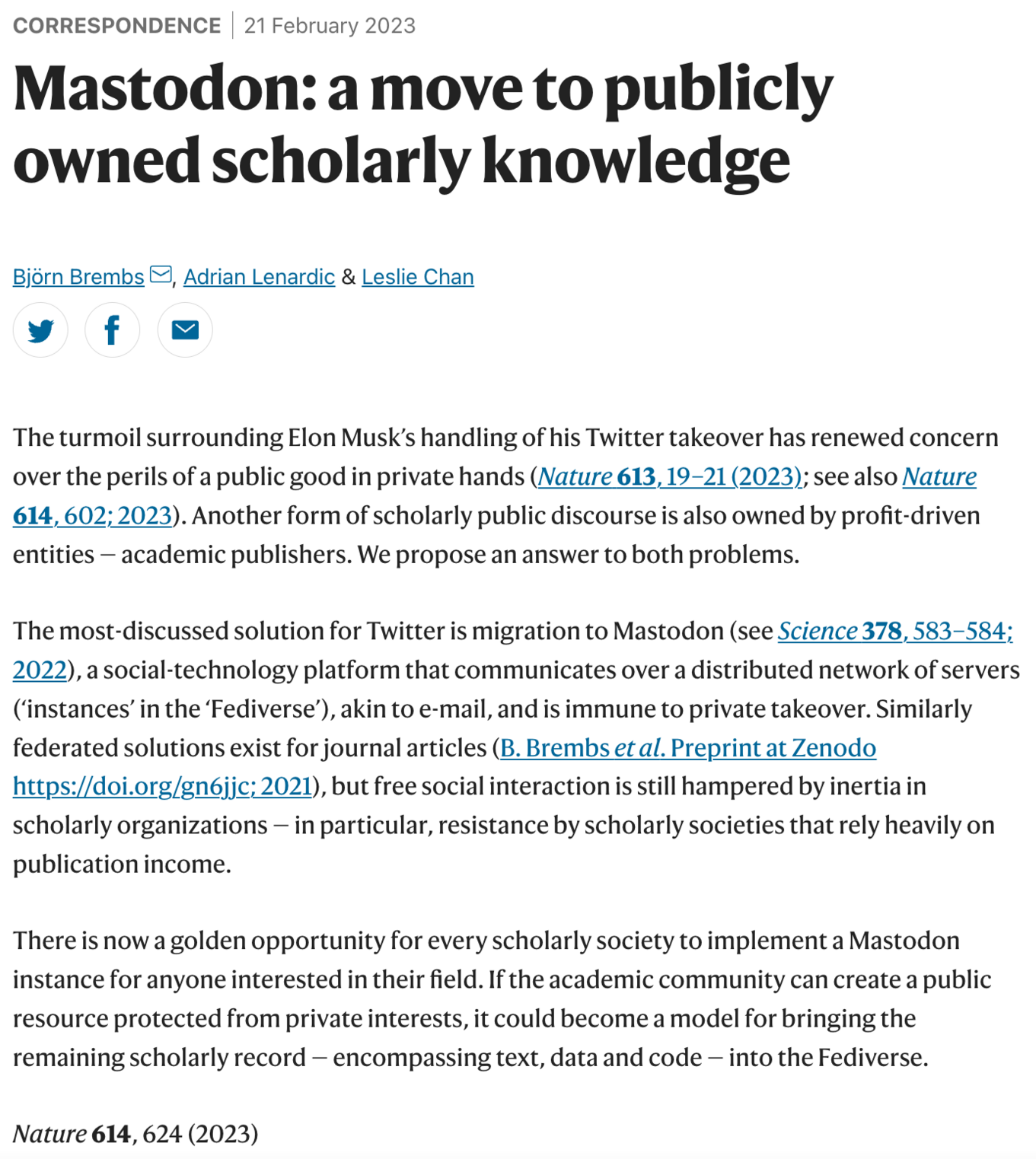Nature publishes correspondence about value of moving to the fediverse
Nature has published correspondence that calls for every scholarly institute to set up their own Mastodon instance. It talks about how global communications platforms such as Twitter and the fediverse are common goods, that should be in public hands, not private property.

The scientific journal juggernaut Nature has published a correspondence that calls for every scholarly institute to set up their own Mastodon instance.
The abstract can be found on Nature's website, here. It's worth clicking the link just to personally experience the beautiful irony of an abstract that calls for-profit academic journals as a problem being paywalled.

The authors have written a full article, 'Mastodon over Mammon - Towards publicly owned scholarly knowledge', that is freely accessible at Zenodo.
A few things are worth noting about the article:
- The authors describe the communications that happened on #sciencetwitter as scholarly commons. This frames Mastodon as not just another Twitter, but indicates that there is something more fundamental at play here: our communications platforms are a public common good, that we should all have ownership over.
- "The technical potential of the Fediverse exceeds functionalities such as Mastodon and offers solutions to merge existing repository and peer review solutions with what we now call social technology: the difference between toots, journal articles and monographs is more quantitative than qualitative."
What is noteworthy to me about this is the recognition of how flexible and extendible the fediverse is. It´s easy to be mainly focused on the microblogging side of the fediverse, but the potential to move beyond that is large.
The lead author of the paper, Björn Brembs, can be found on Mastodon here.
This line from the article is nice to end with: "Scholarly societies today face the choice of embracing the digital Mastodon or face the fate of the analog Mastodon."



